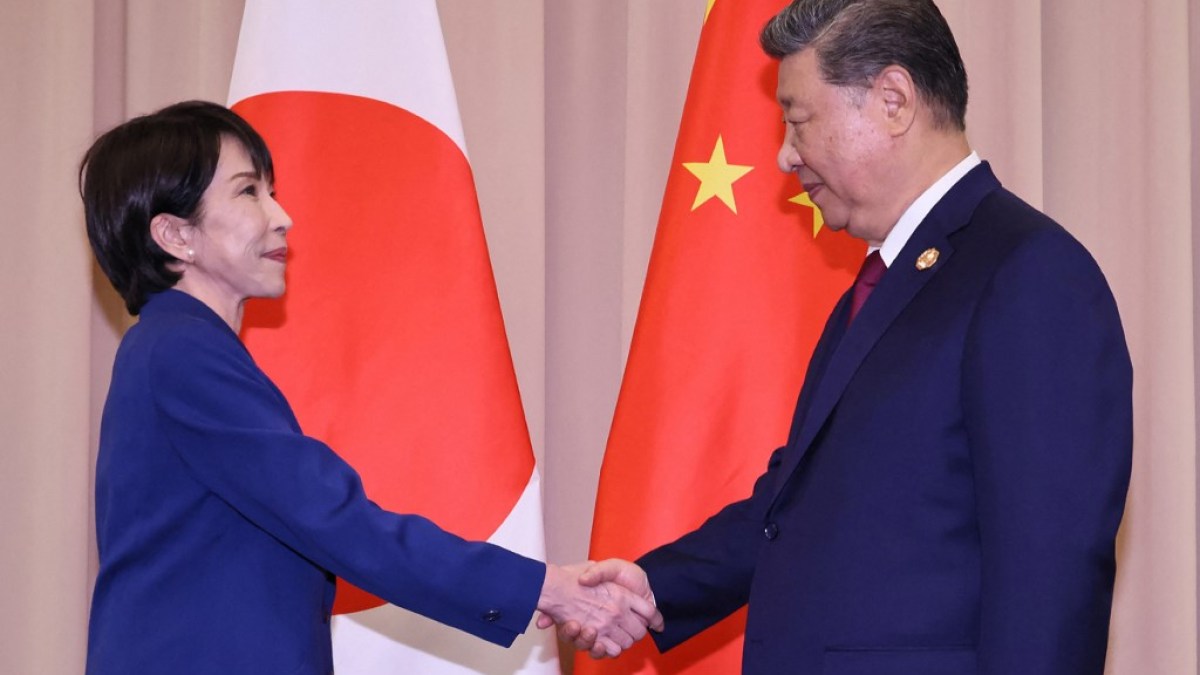China-Japan Tensions Escalate: PM Takaichi's Taiwan Remarks Spark UN Dispute, Trade War & Security Fears
 Japan
Geopolitics
Japan
Geopolitics

China-Japan relations plummet after PM Taikachi's Taiwan comments spark a UN complaint, trade war, and heightened security tensions over disputed territories.
The geopolitical landscape of East Asia has been rocked by a significant escalation in tensions between China and Japan, plunging their relationship to its lowest point since 2023. At the heart of this deepening dispute are recent comments made by Japanese Prime Minister Sanae Takaichi concerning Taiwan, which have prompted Beijing to lodge a formal complaint with the United Nations.
Escalation to the UN and Accusations of Aggression
On Friday, China's permanent representative to the UN, Fu Cong, sent a letter to Secretary-General Antonio Guterres, asserting that any Japanese armed intervention in the "cross-Strait situation" — referring to the waters separating mainland China from self-governing Taiwan — would constitute "an act of aggression." Beijing firmly maintains its claim over Taiwan and has not ruled out the use of force to integrate the island. This move marks a critical turning point, indicating China's intent to internationalize the conflict.
Prime Minister Takaichi's Controversial Stance
The diplomatic firestorm ignited earlier in November following remarks by Prime Minister Takaichi, who assumed office in October. Addressing parliament on November 7, the staunch Taiwan supporter indicated that a Chinese naval blockade or military action against Taiwan could trigger a Japanese military response. This statement diverged sharply from her predecessors' cautious approach, who typically expressed concern but avoided outlining specific intervention scenarios. Takaichi's declaration that such a situation could become "survival-threatening" for Japan immediately drew strong condemnations and demands for retraction from China's foreign and defense ministries.
A Swift Downward Spiral: Threats, Trade Wars, and Territorial Disputes
The controversy quickly spiraled into a multifaceted dispute. China's Consul General in Osaka, Xue Jian, reportedly posted a now-deleted message on X (formerly Twitter) threatening to "cut off that dirty neck," which ignited outrage in Japan and led to calls for his expulsion. While Chinese officials defended Xue's comments as personal, Beijing summoned the Japanese ambassador on November 14, warning of a "crushing defeat" should Japan meddle with Taiwan. Japan reciprocated by summoning the Chinese ambassador the following day to protest Xue's online remarks. Despite later pledges from Taikachi to avoid specific scenarios, she has refused to retract her initial comments.
The diplomatic frost has permeated economic and security spheres:
- Travel and Education Warnings: China issued a no-travel advisory for Japan, impacting a crucial tourism sector that saw 7.5 million Chinese visitors in the first nine months of the year. Chinese airlines offered flight refunds, and the Education Ministry warned students about alleged crimes against Chinese nationals in Japan.
- Territorial Flares: Tensions heightened in the East China Sea as Chinese coastguard vessels patrolled around the disputed Senkaku (Diaoyu) Islands, drawing condemnation from Japan for a "violation" of its territorial waters.
- Cultural and Economic Retaliation: China suspended screenings of Japanese films and banned Japanese seafood imports. A scheduled tripartite meeting of culture ministers involving Japan, China, and South Korea was also postponed.
A Symbol of Defiance and Historical Echoes
A meeting between diplomats in Beijing on November 18 offered no resolution. Senior Chinese official Liu Jinsong wore a distinct five-buttoned collarless suit, a gesture interpreted by Japanese media as a "symbol of defiance" linked to student rebellion against Japanese imperialism in 1919. His perceived disrespectful posture during the meeting further underscored the deep-seated animosity.
This current friction is deeply rooted in a complex and often painful history. Imperial Japan's occupation of vast Chinese territories following the First Sino-Japanese War (1894-95) and the subsequent full-scale invasion in 1937 left lasting scars. While Japan recognized the People's Republic of China in 1972, agreeing to the "one China principle," it has maintained robust unofficial ties and trade with Taiwan. Japan, like the US, has long upheld "strategic ambiguity" regarding its military response to a Taiwan invasion, a policy now challenged by PM Takaichi's direct remarks.
Economic Fallout
The trade relationship, valued at hundreds of billions annually, is already feeling the strain. China's commerce ministry reported "severely damaged" trade relations. China, Japan's second-largest export market (primarily for industrial equipment, semiconductors, and automobiles), bought $125 billion worth of Japanese goods in 2024. Tokyo, in turn, imported $152 billion from China, its third-largest trading partner. Japanese seafood exporters, still reeling from a 2023 Chinese ban over Fukushima water discharge (lifted just before Takaichi's comments), face renewed uncertainty. China has previously used trade as a diplomatic tool, notably halting rare earth mineral exports to Japan in 2010 over territorial disputes. The immediate future for Sino-Japanese relations appears fraught with ongoing geopolitical and economic challenges.